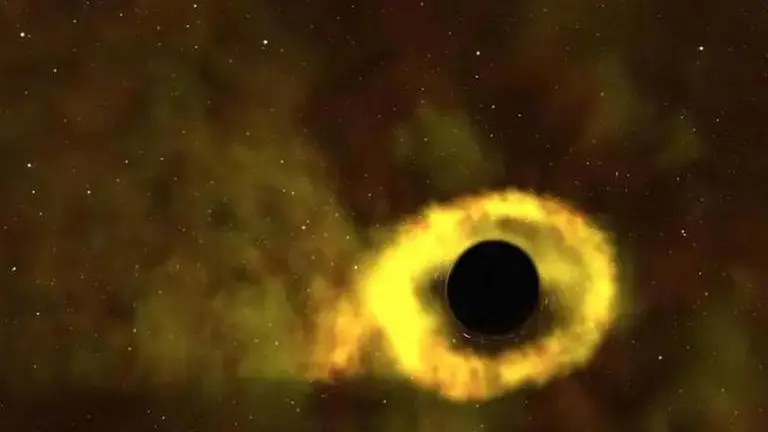Updated 10 November 2019 at 15:21 IST
Black hole merger may be explained by 'Pac-Man-like' mechanism: Study
In a first, researchers have created simulations explaining how the largest of black hole mergers may have happened with a possible "Pac-Man-like'' behaviour.
- India News
- 2 min read

In a first, researchers have created simulations explaining how the largest of black hole mergers may have happened, showing one may have devoured another "in a 'Pac-Man-like' behaviour." The researchers, including those from Rochester Institute of Technology in the US, said the disturbances in space from 10 black hole mergers have been detected so far as gravitational waves by observatories on the Earth, but the origins of these mergers still remain to be explained.
The largest black hole merger observed to date defied previous models since it had a higher spin and mass than the range thought possible, they said. The current study, published in the journal Physical Review Letters, noted that such large mergers could happen just outside supermassive black holes at the centre of active galaxies.
Black holes collide and merge
According to the researchers, gas, stars, dust, and black holes may get caught in a region surrounding supermassive black holes known as an accretion disk. As black holes circle around in the accretion disk, they may eventually collide and merge to form a bigger black hole, which may continue to devour smaller black holes, becoming increasingly large in a 'Pac-Man-like' behaviour, according to study co-author Richard O'Shaughnessy from Rochester Institute of Technology.
Advertisement
"It offers a natural way to explain high mass, high spin binary black hole mergers and to produce binaries in parts of parameter space that the other models cannot populate. There is no way to get certain types of black holes out of these other formation channels," O'Shaughnessy said.
Hunt for gravitational waves
The researchers hope to find signatures of large, spinning black holes that could help confirm their models as labs across the world continue to hunt for gravitational waves. "This could be a unique way of probing the physics around these supermassive black holes in a way that could not be probed in any other way," said O'Shaughnessy. "It offers unique insight into how the centres of galaxies grow, which is, of course, essential to understanding how galaxies as a whole grow, which explains most of the structure in the universe," he said.
Advertisement
Published By : Press Trust Of India
Published On: 10 November 2019 at 14:11 IST
